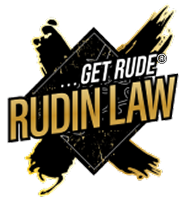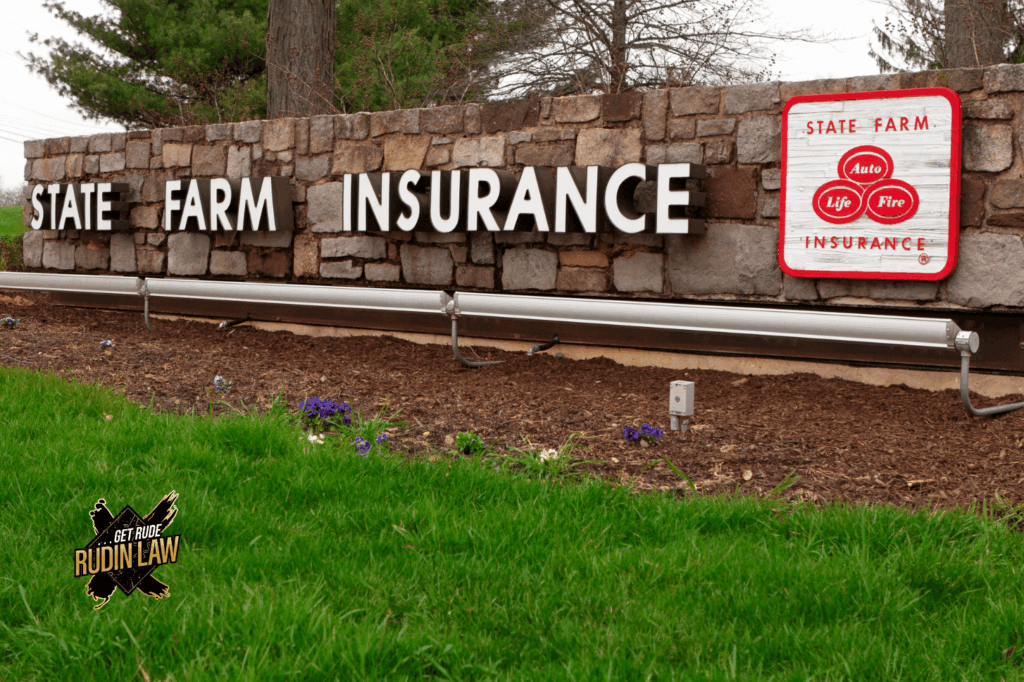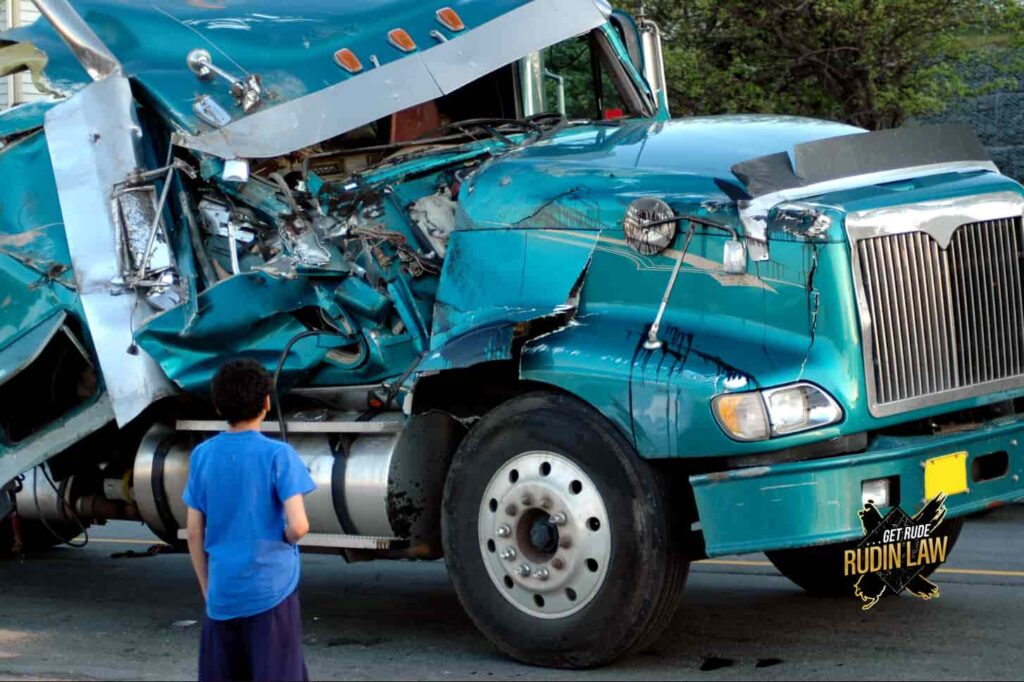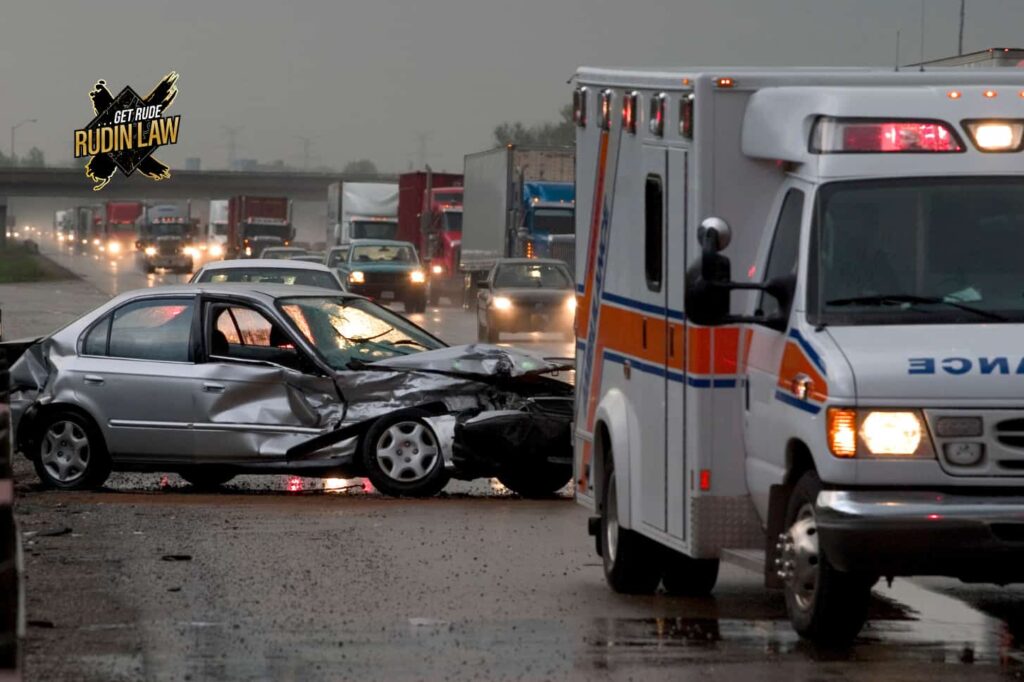A car accident in Louisiana doesn’t just wreck your car. It can affect your health, your paycheck, and your peace of mind. Suddenly you’re facing hospital bills, missed work, and the stress of an insurance claim you never wanted. When the other driver is at fault and insured by State Farm, you’ll be dealing with their company to pursue compensation. That’s when the “good neighbor” slogan fades fast, because State Farm’s priority is protecting its profits, not your recovery.
If you were injured in a crash in New Orleans or anywhere in Louisiana, knowing how to handle a third-party State Farm claim can make the difference between getting brushed off and holding the insurer accountable.
Start at the Accident Scene
The claim process begins long before you contact the insurance company. What you do at the accident scene sets the foundation for your case.
- Call the police and get an official report. Louisiana law requires reporting crashes involving injury, death, or property damage over $500 (La. Rev. Stat. § 32:398).
- Gather insurance and contact info from the other driver.
- Take photos of the accident scene, the vehicles, your injuries, skid marks, traffic signals, and road conditions.
- Get witness names and numbers.
- Look for nearby businesses or homes with surveillance footage that may have captured the crash.
And keep your words in check. Don’t admit fault. A casual “I didn’t see you” can and will be twisted by the insurance company.
Don’t Shrug Off Seemingly Minor Injuries
It’s common to feel “fine” after a crash, thanks to adrenaline. But hours or days later, pain and injuries can surface. Concussions, back injuries, and internal damage often don’t show up right away.
Always seek medical attention. This does two things:
- Protects your health by catching injuries early.
- Creates medical records that connect your condition directly to the crash.
Without documentation, State Farm may argue your injuries came from somewhere else.
Reporting a State Farm Claim
In Louisiana, the at-fault driver is required to notify their insurance company about the crash. If that driver is insured by State Farm, the company should open a claim file. But don’t assume the process will move smoothly from there. If the at-fault driver never reports the accident or State Farm doesn’t follow up, you may need to contact State Farm directly to open what’s called a third-party claim.
When you file, be ready to provide:
- State Farm policyholder’s name
- State Farm policy number
- Make of their vehicle
- Date of the incident
- The police report number
- Names and insurance details for all drivers involved
- Vehicle information, including VIN numbers
- Photos or videos of the accident scene and property damage
- Medical records and bills, if you already have them
Filing quickly is important, but rushing without the right information can backfire. If anything is missing or inconsistent, State Farm may drag its feet or dispute your claim.
What if You Have State Farm and You Were At Fault?
If you caused the crash and State Farm is your carrier, you should report the accident to your own policy as soon as possible so they can open a liability file. Your liability coverage will address the other driver’s claims up to your policy limits, while your collision, MedPAY, or health insurance can help cover repairs and medical bills in the short term. If a dispute or lawsuit arises, State Farm will investigate and defend you (subject to your policy terms).
What to Say and Not Say During the Claim Process
After a claim is opened, an adjuster will reach out. This is where things get tricky. Adjusters are trained to sound helpful, but their job is to save the insurance company money.
Here’s how to handle it:
- Stick to the facts. Date, time, location, and vehicles involved—nothing more.
- Don’t speculate. If you don’t know the answer, say so. Guessing only creates openings for State Farm to challenge your version later.
- Avoid admitting fault. Even small comments like “I didn’t see the other driver” can be twisted into accepting liability.
- Keep medical details simple. Mention that you are receiving medical attention, but don’t downplay injuries or guess at long-term effects. Let your doctors’ records speak for you.
- Don’t agree to a recorded statement without legal advice. It sounds routine, but it’s a tool State Farm uses to lock you into statements that may not reflect the full picture.
This part of the process is where many people feel pressure. Adjusters know you’re stressed, and they use that to their advantage. Remember, you’re not talking to a “good neighbor.” You’re talking to someone trained to reduce payouts on car accident cases.
Should You Also Contact Your Own Insurance Company?
Yes. Even if the other driver was at fault, notify your own insurer about the accident. Here’s why:
- If you also have State Farm, they’ll already have the accident on record, but you should still preserve your own coverage rights.
- Uninsured/Underinsured Motorist (UM/UIM) coverage can apply if the at-fault driver’s limits aren’t enough to cover your damages (La. Rev. Stat. § 22:1295).
- MedPAY or collision coverage may help pay medical bills or car repairs while your third-party claim is pending.
Notifying your insurer doesn’t mean you’re admitting fault. It protects your ability to use the coverage you’ve been paying for if you need it.
Who Pays My Medical Bills and Car Repairs While the Claim Is Pending?
Q: Will State Farm pay my hospital bills right away?
A: No. State Farm won’t pay medical bills until liability is resolved and a settlement is reached. In the meantime, your own health insurance usually pays first, and they may later seek reimbursement from the settlement.
Q: What about my car repairs?
A: If you have collision coverage, your insurer can pay for the repairs upfront and then go after State Farm for reimbursement. If you don’t, you may need to wait for State Farm’s adjuster to approve repairs or cover them out of pocket temporarily.
Q: Do I have any other options for medical bills?
A: If you purchased MedPAY on your auto policy, it can cover medical costs quickly. Otherwise, some providers may agree to treat you on a lien basis, meaning they get paid later out of your settlement.
Q: So who’s ultimately responsible?
A: In the majority of cases, that means the at-fault driver and their State Farm policy will be responsible. But Louisiana law only requires minimum liability coverage of $15,000 per person, $30,000 per accident, and $25,000 for property damage (La. Rev. Stat. § 32:900). Serious car accidents often cost much more. When that happens, additional liable parties may come into play, such as an employer if the driver was on the job or even a bar that overserved a drunk driver.
When to Call a New Orleans Car Accident Lawyer
Not every fender bender needs a lawyer. But if you’re injured in a car, facing significant medical bills, or dealing with an insurance company that refuses to play fair, it’s time to consider bringing in a legal team.
You should reach out to a New Orleans car accident lawyer if:
- You suffered injuries requiring ongoing medical attention.
- The other driver was distracted by cell phones or driving under the influence.
- There’s a dispute over determining fault.
- Your claim involves multiple liable parties.
- The settlement offer won’t cover your losses.
Other law firms may run cases through like numbers on a conveyor belt. At RUDIN LAW, every case gets built to fight, not fold.
What a Lawyer in New Orleans Can Do
Filing a claim isn’t just paperwork. Personal injury attorneys in New Orleans can:
- Gather and preserve evidence like police reports, medical records, and surveillance footage
- Reconstruct the accident scene if necessary
- Document property damage and injuries
- Calculate both economic and non-economic damages, including pain and suffering
- Pressure the insurance company into a fair settlement
- Take the fight to Louisiana courts when needed
This isn’t about being polite. It’s about putting pressure where it belongs: on the insurance company that’s trying to protect its bottom line at your expense.
At RUDIN LAW, we follow the R-U-D-E Method. We don’t let insurance companies control the conversation. We build pressure. We demand justice. And we make sure they know you’re not going away quietly.
RESEARCH: Let’s get started with a chat! We’ll walk you through a consultation, pinpointing potential problems and asking for any necessary documents.
UNDERSTAND: By the end, we’ll have a clear understanding of your legal concerns and be able to offer valuable insights and solutions to move forward.
DEVELOP: We’ll develop a customized legal strategy tailored to your specific situation, addressing your concerns and goals.
EXECUTE: We’ll implement the legal strategy, providing experienced guidance and advocacy. We fight tenaciously for the compensation you need to support your recovery.
Tired of the “Good Neighbor” Act? GET RUDE® with RUDIN LAW
You didn’t ask to deal with hospital visits, property damage, or missed work. And you definitely didn’t ask to play games with an insurance company that treats you like just another number.
At RUDIN LAW, we don’t let State Farm or any other insurance company dictate the terms. We go after each responsible party—the other driver, the insurer, even corporate defendants when necessary. We fight until they understand you’re not going away quietly.
Looking for New Orleans car accident lawyers who won’t fold when State Farm stalls, denies, or downplays your case? Our legal team knows how to fight back and win!
Call (504) 500-5504(504) 500-5504 for a FREE case review with a personal injury attorney in New Orleans. Or contact us online and our legal team will get to work building your case today. And you don’t pay us unless we win. Period.
STOP BEING POLITE® and GET RUDE® with RUDIN LAW.
Copyright © 2025. RUDIN LAW. All rights reserved.
The information in this blog post (“post”) is provided for general informational purposes only and may not reflect the current law in your jurisdiction. No information in this post should be construed as legal advice from the individual author or the law firm, nor is it intended to be a substitute for legal counsel on any subject matter. No reader of this post should act or refrain from acting based on any information included in or accessible through this post without seeking the appropriate legal or other professional advice on the particular facts and circumstances at issue from a lawyer licensed in the recipient’s state, country, or other appropriate licensing jurisdiction.
RUDIN LAW
5500 Prytania St. #404
New Orleans, LA 70115
(504) 500-5504(504) 500-5504
https://www.GetRude.com/




